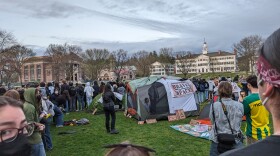New research from the University of New Hampshire says taxes or bans on plastic bags are the most effective ways to manage their impact on the environment.
The research looked at the ways 13 different states and cities around the country have attempted to manage the use of plastic bags – from bans, to taxes, to recycling programs.
Americans use over 100 billion plastic bags each year.
John Halstead with the University of New Hampshire says while each approach to reducing the use of plastic bags had pros and cons, imposing a fee was among the most effective.
“As an economist that’s what we generally recommend, is some kind of what we call a corrective tax to where the price of the material reflects its full cost. Because part of the cost of using bags is the cost of dealing with the pollution that results.”
Efforts to encourage greater recycling of plastic bags were deemed the least effective.
A bill that would have allowed New Hampshire towns to ban plastic bags died in the state senate earlier this year.








